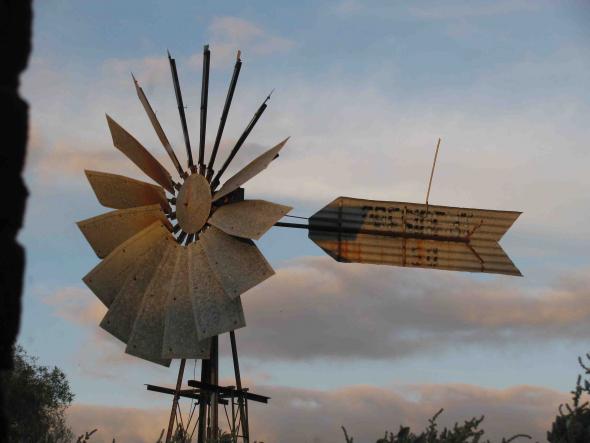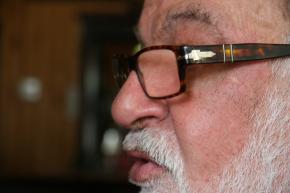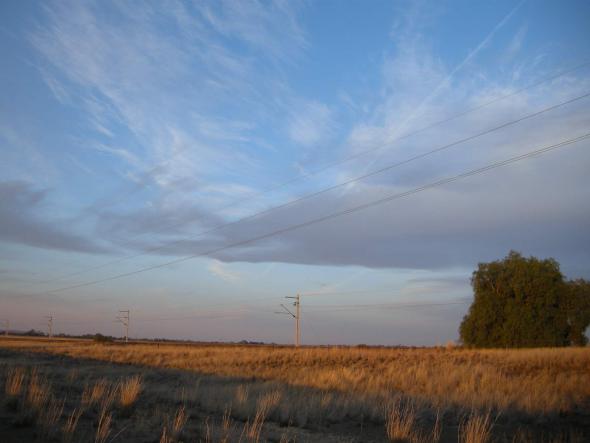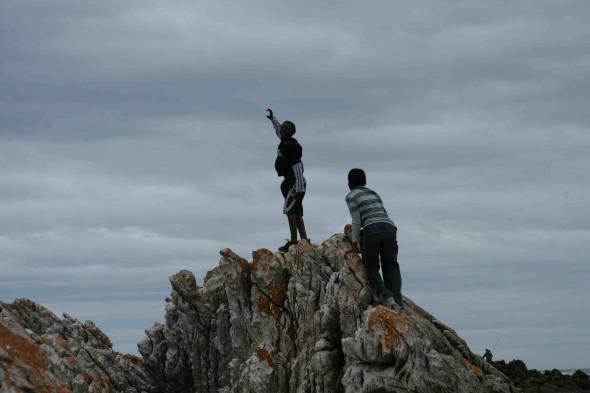a biographical ability - Ruy Duarte de Carvalho
If the biographical ability that is asked of me seeks to situate what I have written on the overseas of yesteryear and Lusophone Portugal of today, then what is being suggested, in fact, is that I take part in the game and accept this positionality as a guideline to what I might have to say.
 Thus:
Thus:
In the 50s of last century, I disembarked in Lisbon with a bicycle and an oil paint box in the luggage. These were precious gifts I could not part company with, one for a birthday and the other for the second year of high school, when, by family decision I was sent from Moçâmedes [Namibe] to get a diploma in Portugal, Santarém, within five years, as an agricultural technician. I never made use of the bicycle or the oil paint. I spent those five years as a boarding student, living in school premises, and both my oil paint, the acknowledgment of my most evident congenital talents, and the bicycle, the adjectification of glorious colonial teen years, were sacrificed to the discipline and the program of my stay in Portugal.
I am not, however, and to be sure, telling the story from the start. When I was in fact embarked in Moçâmedes, I was also being sent to my precise biological birthplace and from where, earlier thus, I had come with family, migrating at the time, to arrive in Moçâmedes. What was there for me in life, anyway, was to be back in Angola with a finished diploma when most Angolan subjects in my age group with resources enough to study were being sent, in turn, to universities in Portugal and placed in the grounds of a turntable, given the times we were living in, conducive to their involvement in opportune dynamics of ideological clarification, political learning, militant guidance and euphoric, redemptive, and patriotic youth options for a direction in life.
At least two major consequences for my biographical past were the outcome of this configuration of things: the first is that the place where I came to the world always constituted for me, since I remember ruminating on things, a reference of exile; the second is that everything that throughout my life was being revealed and determined as place in the world, always struck in an immediate manner, lived, empirical, in vivo, demanding, at times, and without having mine or whatever or whomever’s hand on it, options and actions of life or death in the course of events.  Elaborations and ruminations, theory helping, nearly always came afterwards. I don’t recall having come to the world, evidently, but to compensate I do remember well having changed entirely, both soul and skin, half a dozen times throughout life. That there was a geographical matrix and existential framing that was mine, I took notice when I was about 12 years old while eating bread and over a hiccup attack in the middle of the desert of Moçâmedes, by the Azevedo summit. It continually comes to mind whenever I happen to pass by and maybe that is why I’m always trying to see if I pass by there.
Elaborations and ruminations, theory helping, nearly always came afterwards. I don’t recall having come to the world, evidently, but to compensate I do remember well having changed entirely, both soul and skin, half a dozen times throughout life. That there was a geographical matrix and existential framing that was mine, I took notice when I was about 12 years old while eating bread and over a hiccup attack in the middle of the desert of Moçâmedes, by the Azevedo summit. It continually comes to mind whenever I happen to pass by and maybe that is why I’m always trying to see if I pass by there.
And there was a reason of Angola that collided with the Portuguese colonial reason; I definitely realized it in very brutal conditions, with 19 years old, and already working as the technician responsible for the forests of Uíge, when, in March 1961, the nationalist uprising from the north broke out.
 In the aftermath of this whole tour I ended up spending the night of the 10th to the 11th of September 1975 in the municipality of Prenda, at zero hours, that hour zero, filming the Portuguese flag being lowered and the Angolan one being hoisted simultaneously. By then, when independence happened, I already had my first poetry book published.
In the aftermath of this whole tour I ended up spending the night of the 10th to the 11th of September 1975 in the municipality of Prenda, at zero hours, that hour zero, filming the Portuguese flag being lowered and the Angolan one being hoisted simultaneously. By then, when independence happened, I already had my first poetry book published.
Then, from 75 to 81, I made films for the Angolan television and the Angolan Institute of Cinema, and went around for a while very entertained filming all over Angola and thinking that my peculiar idea of making Angola known to the very Angolans, my countrymen, would be well received.
When I realized that it would be impossible to keep on wanting to do cinema, not the one I wanted nor any other for that matter, I wrote an academic text to accompany one of the films I had shot in the south, hence obtaining a degree in the Ecole des Hautes Etudes en Sciences Sociales, in Paris, that granted me immediate access to PhD candidacy.
 That was the time of Samba and Axiluanda, of an outside of Luanda, another inside it, and the dissertations. Starting in 87 I began teaching some discreet and badly paid classes in Social Anthropology in Luanda and I benefited from sabbatical licenses to accept invitations to teach and consume libraries in Paris, Bordeaux, Sao Paulo and Coimbra. From 92 onward I found a way of spending, every year, five months with the shepherds of Namibe. I decided then to make that information available without that tone of academic or report writing, as I had had my doses of those. And that is how I adopted the way of Vou lá Visitar Pastores [I’ll be there, Visiting the Shepherds] that placed me afterwards on the trail of a semi-fiction that I’ve been insisting on of late. And I also stopped writing poems as such, more and more so.
That was the time of Samba and Axiluanda, of an outside of Luanda, another inside it, and the dissertations. Starting in 87 I began teaching some discreet and badly paid classes in Social Anthropology in Luanda and I benefited from sabbatical licenses to accept invitations to teach and consume libraries in Paris, Bordeaux, Sao Paulo and Coimbra. From 92 onward I found a way of spending, every year, five months with the shepherds of Namibe. I decided then to make that information available without that tone of academic or report writing, as I had had my doses of those. And that is how I adopted the way of Vou lá Visitar Pastores [I’ll be there, Visiting the Shepherds] that placed me afterwards on the trail of a semi-fiction that I’ve been insisting on of late. And I also stopped writing poems as such, more and more so.
Today I still can’t manage being for long out there without returning to the nocturnal murmur of Luanda that arises from the back of my house in Maianga, and without hopping down south every now and then to visit shepherds. And I believe, having arrived at this point in life, that I can’t stop wanting to understand that the world, all over and not just here, conspires and produces utilizing always, or almost always, the use and abuse of others’ good faith. I’m afraid I will never be able, even oldish, to resign to this and become the subject well done, dissimulated, pirate, adaptable and finally adapted, that never, throughout my entire life, have I managed to be.  But I also think that I learned, meanwhile, to laugh at myself, of my congenital incompetences and the bad temper that I am obviously the only one in the world to have. And there are some intervals in which everything seems to stay virginally livable, good and pretty, just like the puma thinks, according to Guimarães Rosa, when it fears nothing and goes, guided only by its soul.
But I also think that I learned, meanwhile, to laugh at myself, of my congenital incompetences and the bad temper that I am obviously the only one in the world to have. And there are some intervals in which everything seems to stay virginally livable, good and pretty, just like the puma thinks, according to Guimarães Rosa, when it fears nothing and goes, guided only by its soul.
photographies by Ruy Duarte de Carvalho and Luhuna de Carvalho (South Africa, 2009)